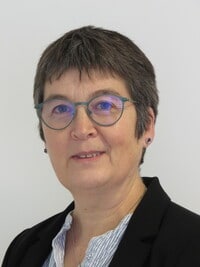“I would like for women to be treated exactly the same as men”
Celebrating the women of oil and gas: In an exclusive interview, Asian Downstream Insights sits down with Cécile Plain, Technology Group Manager, Axens, to understand how the industry and landscape has changed since she first started out 30 years ago.

How did you originally get into engineering, and the oil and gas industry?
I have always been interested in sciences and the scientific process, and making projects for developing structures – ever since I was young! After becoming an engineer, I wanted to improve my knowledge, and applied to schools like the IFP School, which is a post-graduate application school in the field of oil and gas. I really enjoyed my time there; the teachers were inspiring people as they were also working in the industry day by day.
Please tell us a little about what you do at Axens.
I started working for Axens in 1992 as a Process Engineer, and then was involved in start-up activities in refineries located in South Korea. For me, it was an extremely wonderful experience as it is through these activities that you discover more about what you are designing on paper. In addition to this, you are working with a lot of people – your team, and the customer team. You also get to discover foreign countries and other cultures.
After these experiences, I continued to explore other jobs in Axens, different jobs like technology specialization of the bottom of the barrel, where I developed my expertise, then Head of the Technical Assistance group, and finally the consulting division today, where I can apply all my knowledge and support all refiners in their strategic projects.
You’ve been in STEM for almost 30 years now! Could you tell us what it’s like to be a woman in this field?
When I first started working, there were not a lot of women working in the field of oil and gas. What was interesting for me was that the foreign refiners and operators were quite curious about why I chose this work! They were very nice to me, and I developed strong relationships with several of the people I met during my career.
I would say it was easier to work in foreign countries than in France; to be accepted as an engineer and advisor. They have to discuss and work with you as you have been sent as the expert. In France, before sending you on-site or choosing you as a manager they are wondering “what if, because she is a woman…”
What are some challenges unique to women working in this industry, and what are your experiences with such challenges?
I would say that as a woman, you need to be better than a man for the same job, to show first that you have the competencies to work – which is not the case for men. You have to demonstrate that you have legitimacy. Once again, this is easier when you are in face-to-face meetings with customers, instead of in your own company or in refineries for start-up or technical assistance operations in conferences.
What changes have you seen to the gender landscape in this industry? Is it becoming more inclusive?
What we have observed over the past few years is that more women are working in these fields because more women are working in engineering schools. This is the real change – it has to start with the women making the decision (to study in engineering). This can’t be a decision that is made for the women.
What changes do you want to see in this industry in the future?
I would like for women to be treated exactly the same as men, going forward. There’s no need for a quota to be filled, but it would be better to have comparisons drawn on competencies, without judgement on gender.
Is the increased inclusivity and diversity we see in the workforce today actually doing any good, or is it mostly performative?
I think it’s a good incentive! Once again, it has to be done based on the qualities and competencies of the people. We need to show young girls that they have the same opportunities as the boys, to be able to apply for such work.
Could you tell us a little about Axens’ D&I policies? Have they been useful in your experience?
At the beginning of my career, I was determined to work as a field engineer in operations. For that, I tried to contact refiners and the answer was always the same: Women cannot work in the field or conduct night shifts, and would be better off in the laboratories or headquarters. Therefore, I took it up as a subject of discussion with IFP’s industrial division (which we now recognize as Axens), and it was really the only company that offered such an opportunity. What struck me was that it offered regardless of your gender, and it was for me one of the most important points of consideration when selecting my workplace of choice. That’s why I applied.
Now, in Axens, D&I policies are continuously improved – we have a lot of people from all over the world working for Axens in France, as well as in the other offices, and this is a good sign for the future even if the higher management levels are still mainly managed by the men (especially on technical segments; women tend to be in HR, quality management or legal departments).